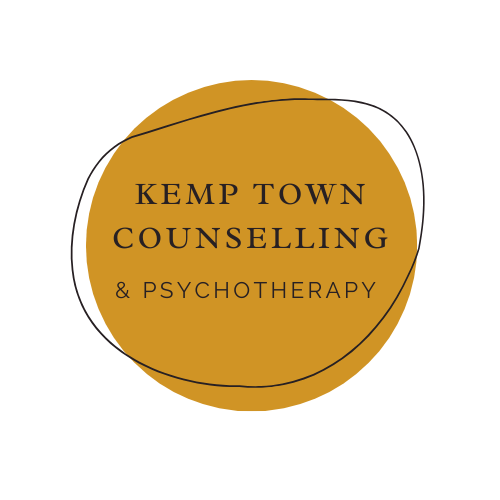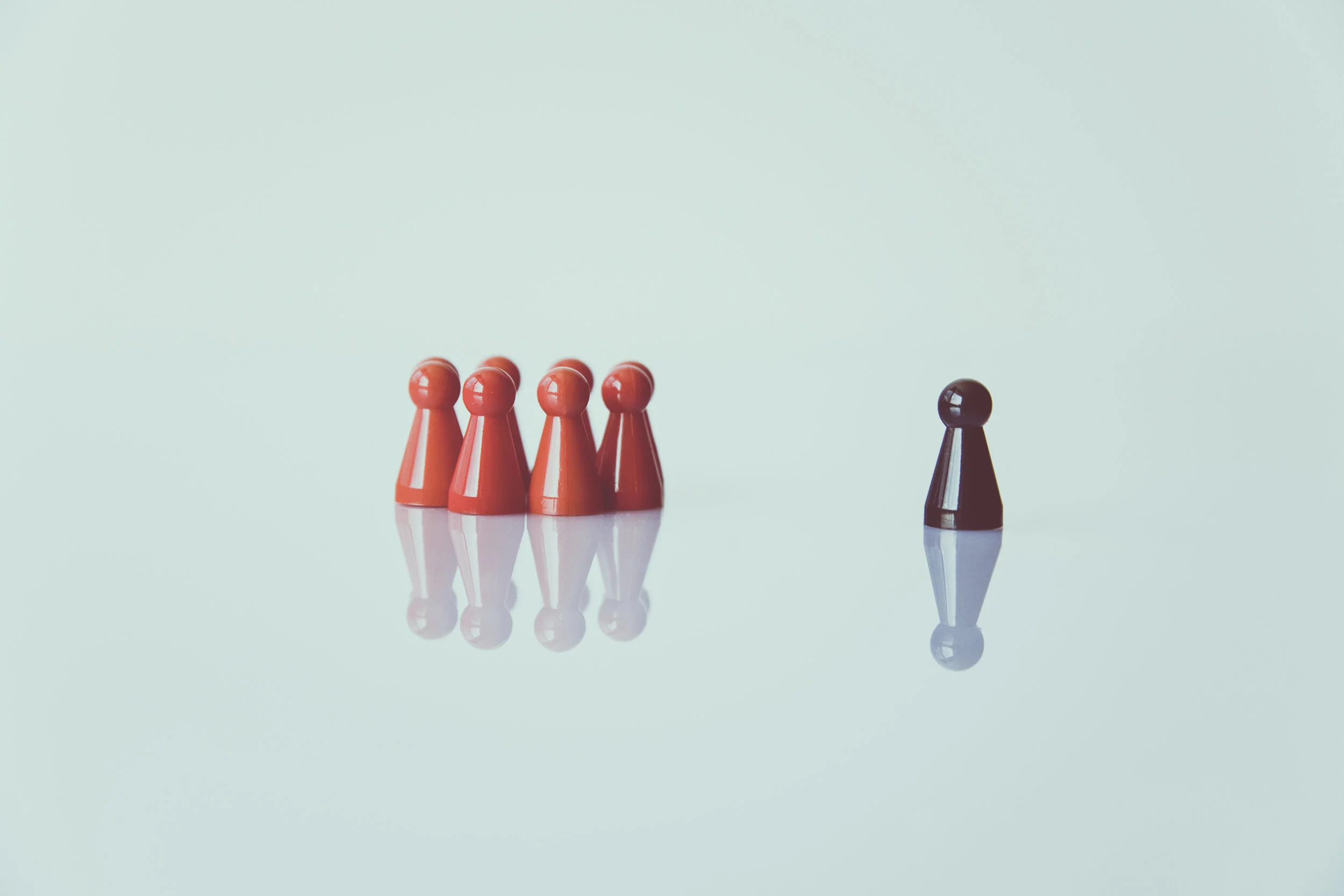Racism in the therapy room
Often I hear, or see in forums, my fellow therapists saying that ‘Politics doesn’t belong in the therapy room’ and that we shouldn’t (my favourite ‘guilt’ inducing word…) display or engage in political discourse. If I’ve learned one thing over the past 2 weeks it’s that we have to and we must engage in issues of racism, power & oppression - both inside and outside of the therapeutic space.
So how is racism, power and oppression present in the culture of therapy? Well, there’s the linguistic imperialism imposed on black or minority communities during therapist training/education groups. Participants are encouraged to use ‘I’ to own their feelings by offering ‘I feel’ statements in process groups. The theory behind it is that when we say ‘I’ we can embody and own our feelings in the here and now. Except, this is only OK for trainees who are white. Rundeep Sembi (2006) writes, “within my Punjabi (home) culture, where the personal pronoun ‘we’ is given the primacy over the ‘I’. (Pg. 55). When we ask students to use ‘I’ and ignore their cultural heritage, we’re effectively forcing them to lose their voice and to adhere to the standards and expectations of the training institution and become proponents of the linguistic imperialism enforced on communities by our forebears. I once attended a community meeting (basically, about 80 therapists and trainees in a circle, engaging in therapeutic process. Yes, that sh*t really happens) when a student declared she wanted to write her dissertation in Creole - as that was her native tongue and her way of expressing herself as she developed her awareness of what it meant to be a black therapist in a predominately white, middle-class profession. I remember the professors stating that they felt things had gotten ‘heated’ and we should take a break. Conversations about racism make people uncomfortable. Which is precisely why we need to have them.
Language can be incredibly disempowering. Specifically therapeutic terms & ways of being can create a sense of elitism or superiority to a trainee or client. In group work, I’ve heard a student express that they don’t like another individual and then hidden under the banner of ‘if you don’t like that then your feelings aren’t my responsibility’ and I’m not wholeheartedly convinced this is a demonstration of congruence but one of intimidation and silencing. And too often, this denial of ‘response-ability’ can be weaponised to disguise racism. Language used within academia or training institutions can silence or belittle cultural experiences or discount intergenerational trauma. Language is political and it can be a way of unconsciously embedding a form of silencing within the therapy culture.
How else does racism show up in therapy? Your therapist could be racist. I’ll let that sink in for a moment. Simply because someone is within the mental health profession doesn’t mean they’ve done ‘The work’. They may display micro aggressions or have stereotypes they hold of people who are black. Noticing how black, female students in an academic institution were consistently interrupted or spoken over the top of - and later they disclosed to me their concerns on how speaking out might label them with the stereotype of ‘Angry, black woman’. This was within a training environment. Luckily my trainers/educators invited open dialogue that was challenging and uncomfortable, meaning these black women had their voice heard. But this shouldn’t be the exception. This shouldn’t be held in high regard. It should be the norm that when black people offer their lived experiences, we shut the f*** up & listen.
For Proctor (2017), there’s an increase in “likelihood of suffering from psychological distress with the individuals position in society with respect to structural power” (Pg. 4), means that she observes how those who feel oppressed or powerless within society tend to be the ones in greater need of therapeutic support. Which means therapy for black and minority communities can feel inaccessible - being in need of support yet the therapy arena is predominantly white people with little to no education on racism. Thankfully, organisations such as BAANT exist and offer a great selection of CPD for therapists on the challenge of racism in therapy. Exploring my whiteness as a therapist with a black client can feel clunky and uncomfortable. But it’s necessary. And I’ll continue with my clunkiness. It means I’ll make mistakes. But isn’t there a saying about doing something imperfectly rather than doing nothing at all? I also know that this post is imperfect, clunky and insufficient.
If therapists can’t, won’t or don’t consider how they might also play on "power arising from the role of therapist and client” (Proctor, 2017. Pg. 176) then we are condemned to be a superficial ally and nothing more. I felt compelled to write this piece in response to the systemic racism & the ongoing fight that black and minority people face. I saw a flood of empathy from friends and family with the ‘black out Tuesday’ posts on social media - but I didn’t feel OK to simply post something that was ‘trending’ as an acknowledgement of the struggles being bought into the light. Racism shouldn’t be deemed a currently trending topic. It’s people’s lived experiences. And I know several people have since removed those posts as they began to learn. That’s what we need to lean into.
Recently, Erin Stevens left the BACP (one of the biggest membership bodies for therapists!!) when they failed to deal with racism she called out within the closed Facebook Group for members. You can read her post here. It matters because if the very membership bodies we as therapists subscribe to don’t share our values systems & don’t use their platform to challenge systemic racism, then it means racism & oppression are more rampant in the therapy community than previous acknowledged.
"When you know better, do better” - Maya Angelou
I have Maya Angelou’s quote next to my bed. It serves as a reminder that I constantly need to educate and evolve, and that the responsibility for that lies solely with me. I’m glad I’ve several outspoken therapists in my community (Yes, you JV & Ruth) who not only spend time engaging with me personally but also with the wider conversations about systemic racism. Additionally, Dr Dwight Turner has recently offered me some points of reflection on his experiences being a black, male therapist and I’d recommend checking out his blog post here.
BOOK REFERENCES
Proctor, G (2017) The dynamic of power in counselling and psychotherapy. Ethics, politics and practice. PCCS Books: Ross-on-wye.
Sembi, R (2006) ‘The Cultural Situatedness of Language Use in Person-Centred Training’ In Proctor, G., Cooper, M., et al (ed) Politicizing the person-centred approach. An agenda for social change. pp.55- 59. PCCS Books: Ross-on-wye.


